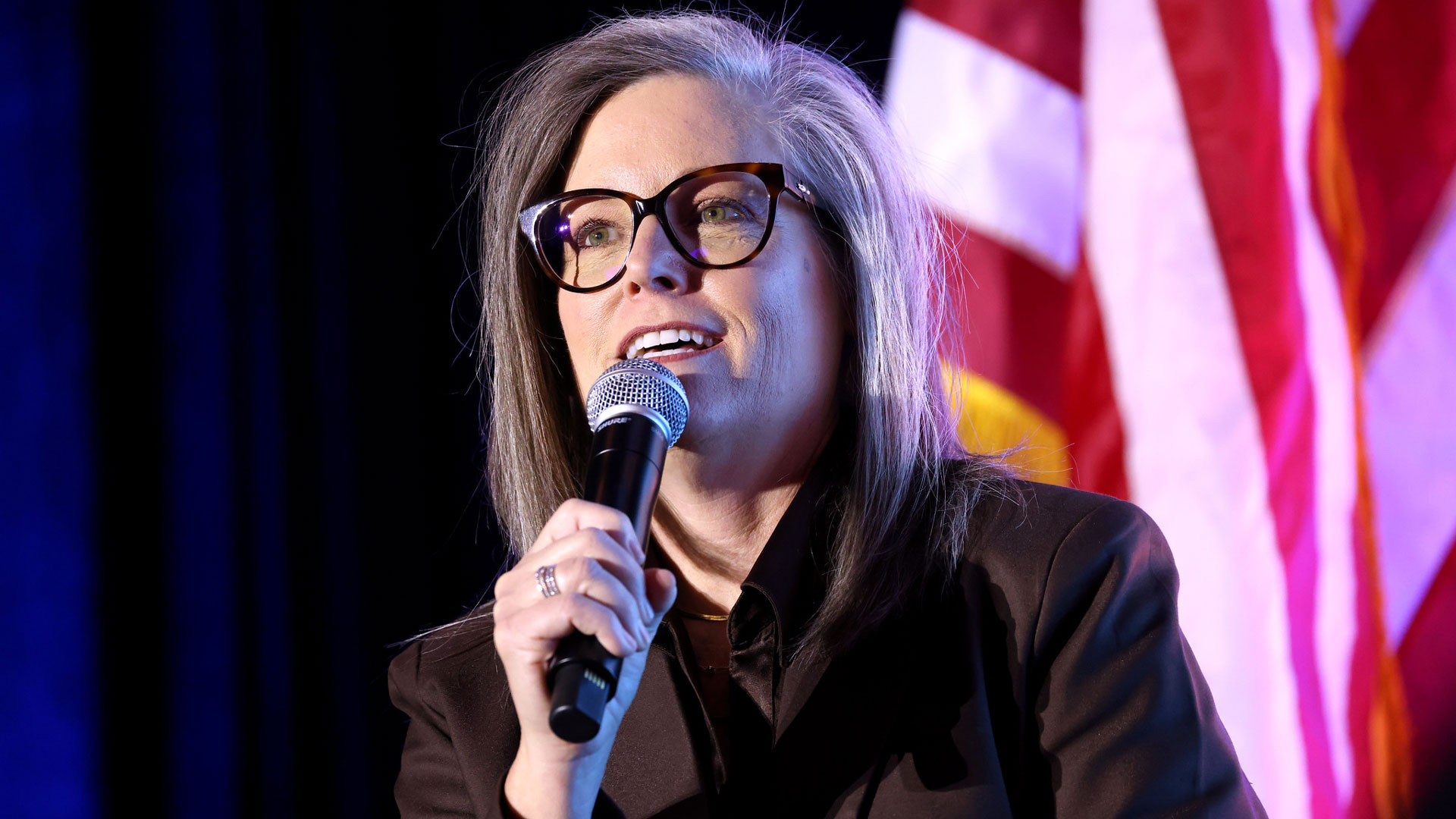 Governor Katie Hobbs speaking with attendees at the 2025 Legislative Forecast Luncheon hosted by the Arizona Chamber of Commerce & Industry at the Phoenix Convention Center in Phoenix, Arizona. January 10, 2025
Governor Katie Hobbs speaking with attendees at the 2025 Legislative Forecast Luncheon hosted by the Arizona Chamber of Commerce & Industry at the Phoenix Convention Center in Phoenix, Arizona. January 10, 2025
Arizona Gov. Katie Hobbs has vetoed a proposal that would have banned teaching antisemitism at the state’s public K-12 schools, universities, and colleges and exposed educators who violate the new rules to discipline and lawsuits.
The proposal would have prohibited teachers and administrators from teaching or promoting antisemitism or antisemitic actions that create a hostile environment, calling for the genocide of any group or requiring students to advocate for an antisemitic point of view. It also would have barred public schools from using public money to support the teaching of antisemitism.
Educators would have personally been responsible for covering the costs of damages in lawsuits for violating the rules.
Hobbs, a Democrat, said Tuesday that the bill was not about antisemitism but rather about attacking teachers.
“It puts an unacceptable level of personal liability in place for our public school, community college, and university educators and staff, opening them up to threats of personally costly lawsuits," she said in a statement. "Additionally, it sets a dangerous precedent that unfairly targets public school teachers while shielding private school staff."
Hobbs described antisemitism as a very troubling issue in the U.S., but said students and parents can go through the state's Board of Education to report antisemitism.
The measure cleared the Legislature last week on a 33-20 vote by the House, including a few Democrats who crossed party lines to support it. It's one of a few proposals to combat antisemitism across the country.
Democrats tried but failed to remove the lawsuit provision and swap out references to antisemitism within the bill with “unlawful discrimination” to reflect other discrimination.
The bill’s chief sponsor, Republican Rep. Michael Way, of Queen Creek, has said his proposal would create accountability when educators fail to protect students from the rise in antisemitism since the start of the Israel-Hamas war.
Opponents said the bill aimed to silence people who want to speak out on the oppression of Palestinians and opened up educators to personal legal liability in lawsuits students could file.
Students over the age of 18 and the parents of younger pupils would have been able to file lawsuits over violations that create a hostile education environment, leaving teachers responsible for paying any damages that may be awarded, denying them immunity and prohibiting the state from paying any judgments arising from any such lawsuits.
Last week, Lori Shepherd, executive director of Tucson Jewish Museum & Holocaust Center, wrote in a letter to Hobbs that if the bill were approved, it would threaten teachers’ ability to provide students with a full account of the holocaust.
Under the bill, “those discussions could be deemed ‘antisemitic’ depending on how a single phrase is interpreted, regardless of intent or context,” she said.
The bill would have created a process for punishing those who break the rules. At K-12 schools, a first-offense violation would lead to a reprimand, a second offense to a suspension of a teacher or principal’s certificate, and a third offense to a revocation of the certificate.
At colleges and universities, violators would have faced a reprimand on first offense, a suspension without pay for a second offense and termination for a third offense. The proposal also would have required colleges and universities to consider violations by employees to be a negative factor when making employment or tenure decisions.
Under the proposal, universities and colleges couldn’t recognize any student organization that invites a guest speaker who incites antisemitism, encourages its members to engage in antisemitism, or calls for the genocide of any group.
Elsewhere in the U.S., a Louisiana lawmaker is pushing a resolution that asks universities to adopt policies to combat antisemitism on campuses and collect data on antisemitism-related reports and complaints. And a Michigan lawmaker has proposed putting a definition of antisemitism into the state’s civil rights law.

By submitting your comments, you hereby give AZPM the right to post your comments and potentially use them in any other form of media operated by this institution.